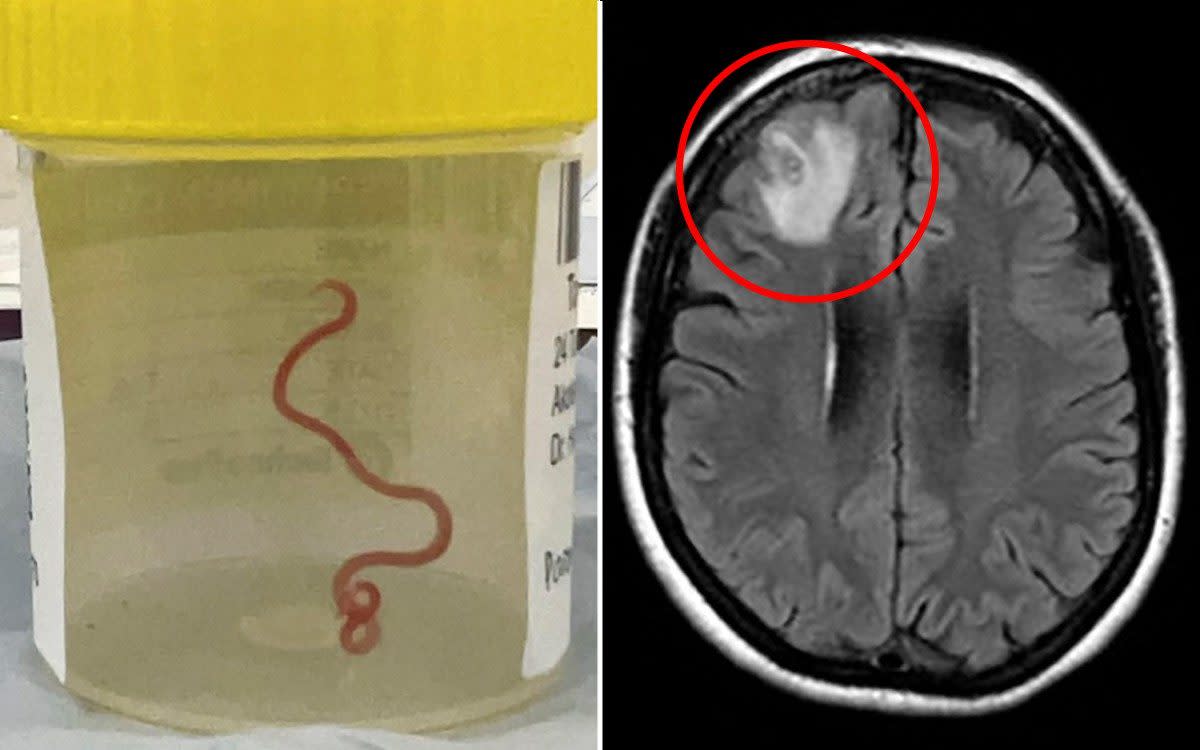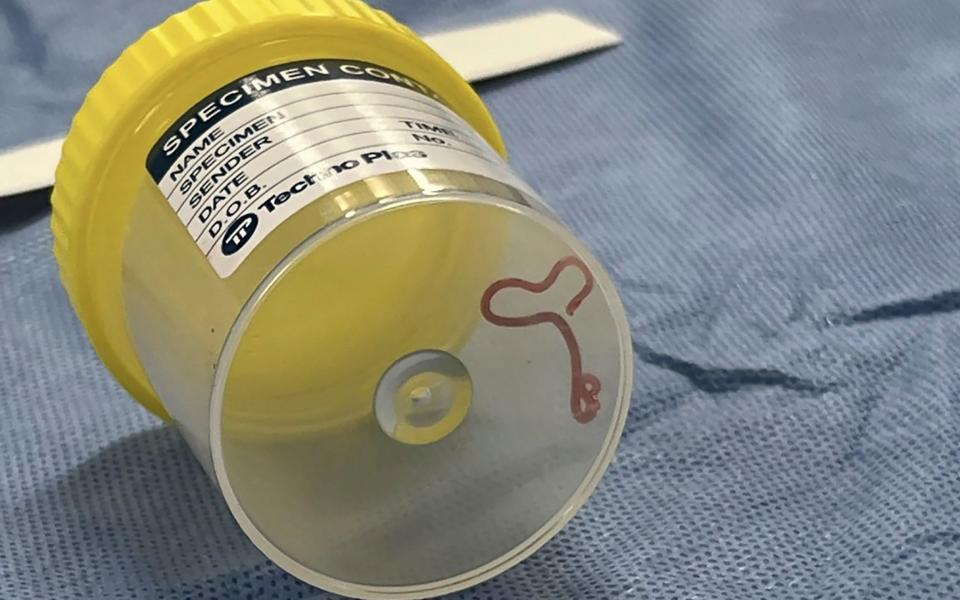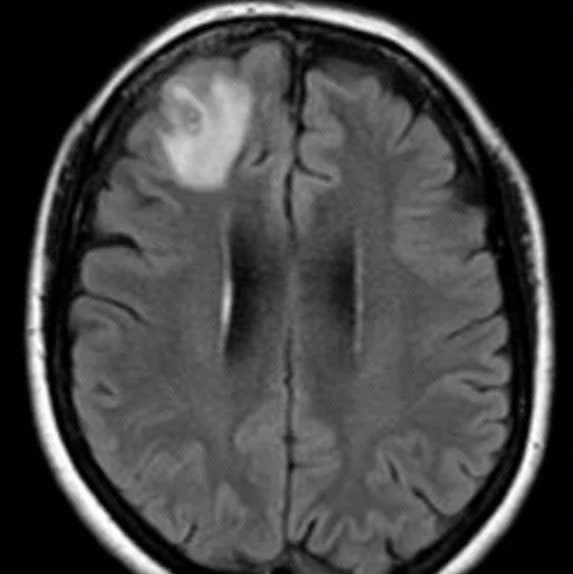Three-inch worm pulled ‘alive and wriggling’ from woman’s brain

A parasitic roundworm typically found in snakes has been pulled “alive and wriggling” from a woman’s brain in a stomach-churning medical first, Australian doctors said.
Doctors performed an MRI scan on the 64-year-old Australian woman after she began suffering memory lapses, noticing an “atypical lesion” at the front of her brain.
It was an eight-centimetre (three-inch) roundworm, called Ophidascaris robertsi, which researchers said was a common parasite in kangaroos and carpet pythons – but not humans.
Hari Priya Bandi was performing a biopsy through a hole in the 64-year-old patient’s skull at Canberra Hospital last year when she used forceps to pull out the parasite.
“I just thought: ‘What is that? It doesn’t make any sense. But it’s alive and moving,’” Dr Bandi was quoted on Tuesday in The Canberra Times.
“It continued to move with vigour. We all felt a bit sick,” Dr Bandi added of her operating team.

Dr Sanjaya Senanayake, an infectious disease expert, said he was on duty at the hospital in June last year when the worm was found.
“I got a call saying: ‘We’ve got a patient with an infection problem. We’ve just removed a live worm from this patient’s brain,’” Dr Senanayake said.
The woman had been admitted to the hospital after experiencing forgetfulness and worsening depression over three months.
A year earlier, she had been admitted to her local hospital in southeast New South Wales with symptoms including abdominal pain, diarrhoea, a dry cough and night sweats.
Dr Senanayake said the brain biopsy had been expected to reveal a cancer or an abscess.
“This patient had been treated ... for what was a mystery illness that we thought ultimately was an immunological condition because we hadn’t been able to find a parasite before and then out of nowhere, this big lump appeared in the frontal part of her brain,” Dr Senanayake said.
“Suddenly, with her (Bandi’s) forceps, she’s picking up this thing that’s wriggling. She and everyone in that operating theatre were absolutely stunned,” Dr Senanayake added.
Dr Bandi said that after the worm was extracted her patient regained consciousness without any negative consequences.
“She was so grateful to have an answer for what had been causing her trouble for so very long,” she said.

The patient had been sent home soon after the surgery with antiparasitic drugs and had not returned to hospital since, Dr Senanayake said.
“She’s done OK, but obviously because this is a new infection, we’re keeping a close eye on her,” he told Ten Network television.
“This is the first ever human case of Ophidascaris to be described in the world.”
Contaminated with parasitic larvae
Researchers believe the woman was infected after foraging for edible shrubs near her house, which were likely contaminated with parasitic larvae shed in snake faeces.
The parasite, which appeared as a “string-like structure” on brain scans, was then identified through DNA testing.
“It is never easy or desirable to be the first patient in the world for anything,” Dr Senanayake said.
“I can’t state enough our admiration for this woman, who has shown patience and courage through this process.”
Dr Senanayake said Ophidascaris roundworms were known to infect animals in other parts of the world, and it was “likely that other cases will be recognised in coming years”.
The findings were published in the journal Emerging Infectious Diseases.

